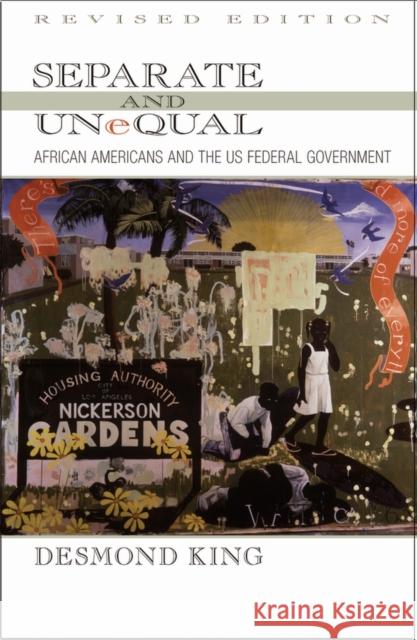Separate and Unequal: African Americans and the US Federal Government » książka
Separate and Unequal: African Americans and the US Federal Government
ISBN-13: 9780195336221 / Angielski / Miękka / 2007 / 384 str.
"In this landmark book, Desmond King reveals and corrects a glaring gap at the epicenter of studies of racial inequality and political development in the United States: their blindness to the pivotal role of the state in making race. With historical precision and analytic rigor, he demonstrates how, for seven decades following the legal affirmation of the doctrine 'separate and equal' in 1896, the federal government both bolstered and expanded racial separation, in effect nationalizing the pattern of black subordination elaborated by Southern segregationists in the aftermath of abolition. The abiding social and symbolic marginality of the African American community in US society thus emerges, not as an inert legacy of slavery or a result of its alleged cultural failings, but as a creature of state policies studiously enforced by the federal bureaucracy until the 1960s. Enriched by a postscript that reviews and revises its core argument, this new edition of Separate and Unequal is one that every serious student of racial domination and comparative politics will want to read and engage."--Loic Wacquant, University of California, Berkeley, and Centre de sociologie europeenne, Paris
Despite major strides in combating racial segregation and oppression since the Civil Rights movement, racial inequality remains a persistent and vexing problem in America today. At the forefront of recent scholarship highlighting the central influence of the US federal government on race relations well before the 1960s, Separate and Unequal uncovers, through archival research, how the federal government used its power to impose a segregated pattern of race relations among its employees and, through its programs, upon the whole of American society. In a new postscript to this revised edition, Desmond King places his original, groundbreaking analysis in the context of recent studies and connects the legacy of exclusionary programs and policies to current racial disparities in welfare reform, prisons, and education.










